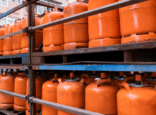Understanding LPG Gas Prices in South Africa: A 2025 Consumer Guide

Introduction
As South African households and businesses continue to rely on liquefied petroleum gas (LPG) for cooking, heating, and other energy needs, understanding LPG gas refill prices has become crucial. With fluctuating costs influenced by international crude oil prices, exchange rates, and seasonal demand, consumers must be well-informed to make cost-effective purchasing decisions.
LPG Gas Price Variations Across South Africa
LPG gas prices vary significantly by cylinder size, location, and supplier. As of March 2025, the 9kg cylinder refill price ranges between R318 and R399, while the larger 48kg cylinder costs between R1,700 and R2,300. These differences highlight the importance of comparison shopping before making a purchase.
- 9kg Cylinder: R318 – R399
- 19kg Cylinder: R673 – R899
- 48kg Cylinder: R1,700 – R2,300
Key Factors Affecting LPG Gas Prices
Several factors contribute to LPG price fluctuations:
- Global Crude Oil Prices: The increase in crude oil prices from $72.78 to $77.41 per barrel has directly impacted LPG costs.
- Rand-Dollar Exchange Rate: The weakening of the rand against the US dollar (R18.73 per USD) increases import costs.
- Seasonal Demand: Higher demand in colder months drives prices up.
- Supplier Competition: Prices vary by supplier due to differing operational costs and pricing strategies.
Tips to Save on LPG Refills
- Compare Prices Online – Websites like LP Gas Online and Simply Gas provide updated refill rates.
- Buy in Bulk – Bulk purchases offer discounts, reducing the cost per kilogram.
- Choose Larger Cylinders – Per-kilogram costs decrease with larger cylinders.
- Consider Delivery Fees – Some suppliers offer free delivery within specific areas, reducing total costs.
Conclusion
Understanding LPG gas pricing trends can help South African consumers make better purchasing decisions. By staying informed on supplier rates, price fluctuations, and cost-saving strategies, households and businesses can effectively manage their energy expenses in 2025.
